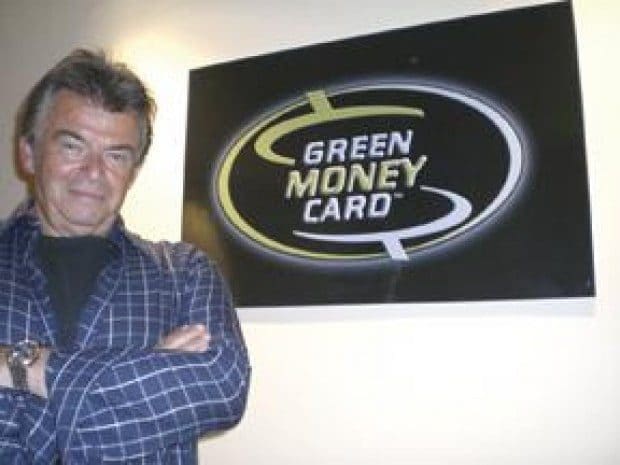Les Steinmetz arrived on America’s shores at the tender age of eight, the son of Holocaust-era concentration camp survivors. So he was uniquely programmed to grow up and thrive in a world of dog-eat-dog capitalism.
When he lost his first home in Malibu, in the fires of ’93, and then his second home was red-tagged after the landslide threats of ’98, he wasn’t much fazed. “I’m probably the wealthiest homeless person I know,” Steinmetz said at the time.
Such a chutzpah-laden approach to personal survival has poised Steinmetz to launch a business enterprise that could possibly fill a starving social niche in the world of banking-the Green Money Card.
“The Green Money Card will basically provide banking, payroll and debit card services for a segment of our population that traditionally has been completely underserved,” Steinmetz explained.
In 2006, $30 billion was wired from “underserved” consumers in this country to Mexico alone.
Steinmetz’s entrepreneurial journey began in his 20s, when he and his brother worked in European export firms, sending gold jewelry to friends in New York, with whom he developed major distribution networks. However, he wasn’t sure where his career was headed.
“I was also working as an actor at the time, but I was making a lot more money in exports,” he said.
He went with the money.
The Steinmetz brothers’ focus shifted to product liquidation in the late ’80s, the precursor to such retail behemoths as Costco.
A stint as vice president of sales for Fed Mart and a position with Dupont’s Mexican branch for global sourcing provided great training ground for mass-market distribution.
“I’ve been fortunate,” Steinmetz acknowledged. “I’ve got a good nose for market direction.”
Several years ago, Costco asked him to look into prepaid phone cards. “I had had some success in developing distribution for DVDs and we were looking to expand that to phone cards,” he explained. “You can have the greatest product in the world, but it won’t work if you don’t have distribution.”
After developing the $1 DVD, Steinmetz ended up shipping 50 million DVDs around the world.
With a demand for prepaid phone cards rising, Steinmetz realized that “any kind of prepaid product has its built-in market.” From phone cards to gift cards, he had opened 60,000 retail doors across the country when he started to receive interest from banks about debit cards.
Banks typically rake in huge fees from their debit card users’ transactions each year. But bank services are only available to people in an “established social strata, with American Social Security numbers and permanent addresses,” Steinmetz explained.
As many employers and workers in Border States such as California and Texas know, that precludes an enormous segment of the population.
“There are 60 to 80 million workers in this country that are ‘unbanked,'” Steinmetz said. “Even though documented, they work in this country, pay their taxes and send money home to their families without ever using traditional American banks.”
But it costs them. Western Union typically charges $15 to $20 to wire transfer money. Check cashing and payday advance services can cost 20 percent of the paycheck. “I remember my Dad going to the corner grocery each week and paying $75 to buy $50 worth of groceries,” Steinmetz said. “It’s part of the immigrant reality.”
So, after witnessing ATM fees, a seed was planted.
Assembling a team of first-tier financial and marketing minds to help, Steinmetz developed a financial services network that will provide federally chartered banking services for anyone at any level of society, at fees a fraction of the cost of regular banks.
“With The Green Money Card Pak, you get two debit cards,” Steinmetz explained. “You go to any one of thousands of retailers, deposit your cash with them and send your other card to whoever you want. That card holder can use his debit card whereever he wants to access those funds and it only costs 15 cents per transaction.”
The Green Money Card can also be used to direct deposit salaries, at a fraction of the cost of regular payroll services. Dads can give college-bound students an easily reloadable debit card for schoolbook purchases. Your nanny can always have cash available for purchases.
As Steinmetz enthused, “It’s virtual banking, but without a credit history, and the ‘teller’ is now a store cashier or payroll agent.”
Raul Godinez is former chairman of the Southern California chapter of the American Immigration Lawyer’s Association. He said he thinks the Green Money Card has a big future.
“Handling money becomes a competitive market, which is good for the consumer,” Godinez said. “The more you can bring people out of the shadows, the more you can track them. Everyone wins.”
Steinmetz and crew are ready to launch their “all in one card solution” within the next few months through intense viral marketing via the Internet, radio and direct market sales.

